This Fancy Tuna Melt Is Actually Very Easy to Make
Credit to Author: Bettina Makalintal| Date: Fri, 07 Jun 2019 13:01:03 +0000
In our cooking series Quickies, we invite chefs, bartenders, and other personalities in the world of food and drink who are serious hustlers to share their tips and tricks for preparing quick, creative after-work meals. Every dish featured in Quickies takes under 30 minutes to make, but without sacrificing any deliciousness—these are tried-and-tested recipes for the super-busy who also happen to have impeccable taste.
San Francisco’s Coi isn’t the place for a tuna melt. At the two Michelin-starred restaurant, executive chef Erik Anderson is more likely filling tartlets with rings of shaved black truffles or serving geoduck with crispy kombu. But while Anderson might not make the dish at the restaurant, his tuna melt still has a distinct purpose: a quick, satisfying meal, with a side of childhood nostalgia.
“My dad was a chef at a Howard Johnson’s—you know, back when they were HoJo—and my mom was a server, kind of the classic story,” Anderson tells us as he sets up in the MUNCHIES Test Kitchen, unpacking his knife and opening cans of tuna. Though he’s based in the Bay Area, Anderson is in town for a short residency at Chefs Club NYC, and we’re lucky enough to be a stop on his visit. “They bought a diner, and I grew up there, washing dishes. [My mom] used to make this quick sandwich.”
RECIPE: Fancy Tuna Melt
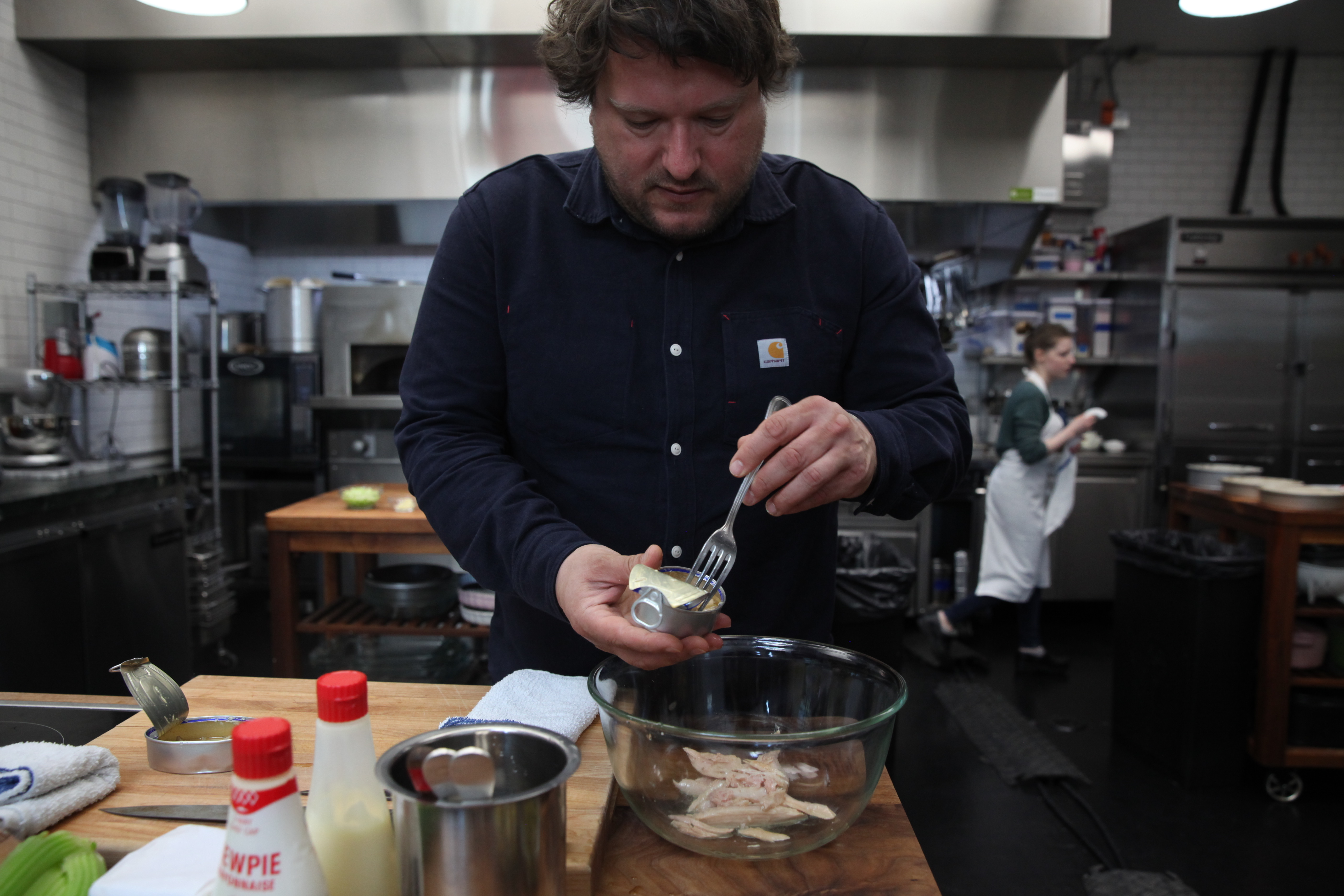
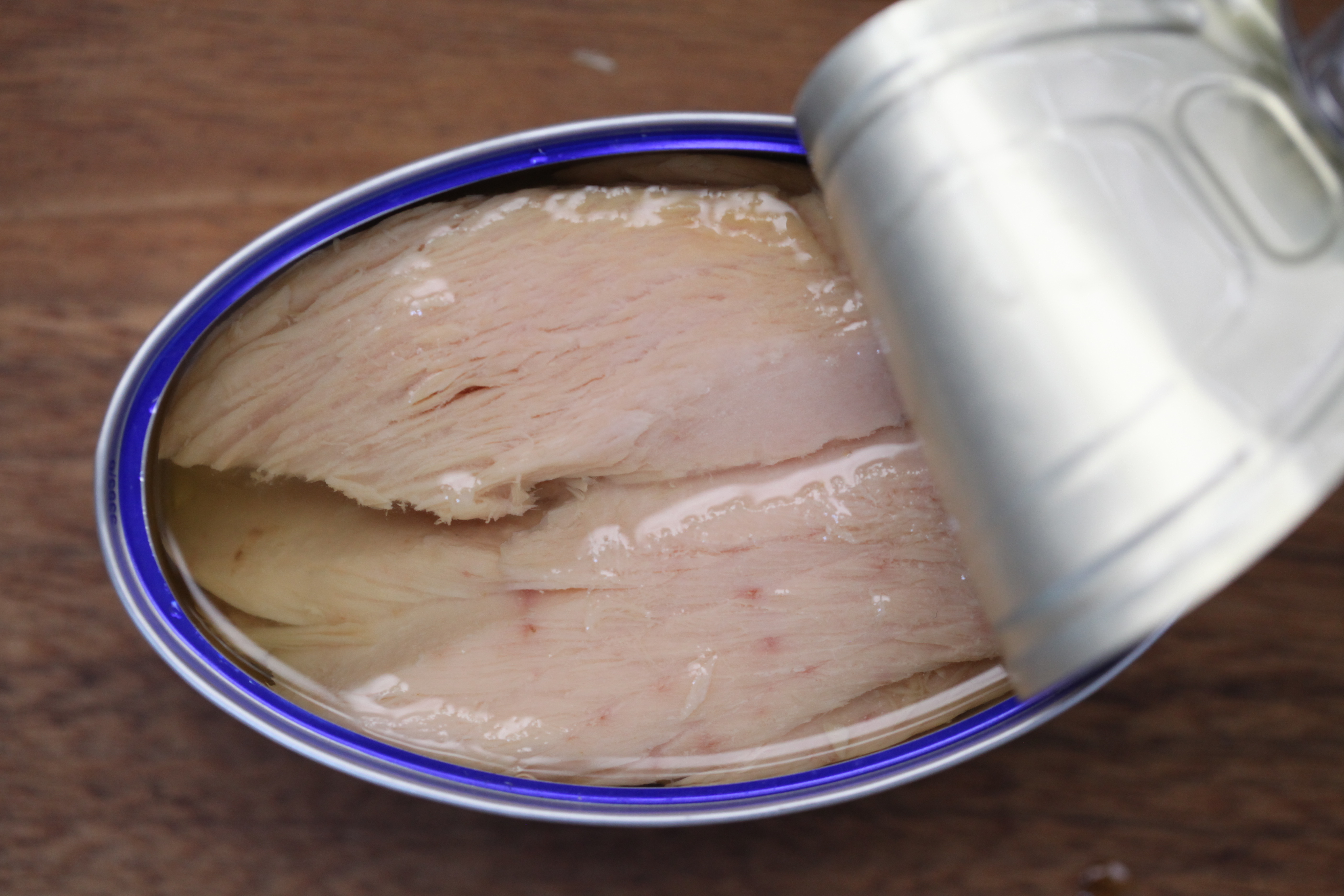
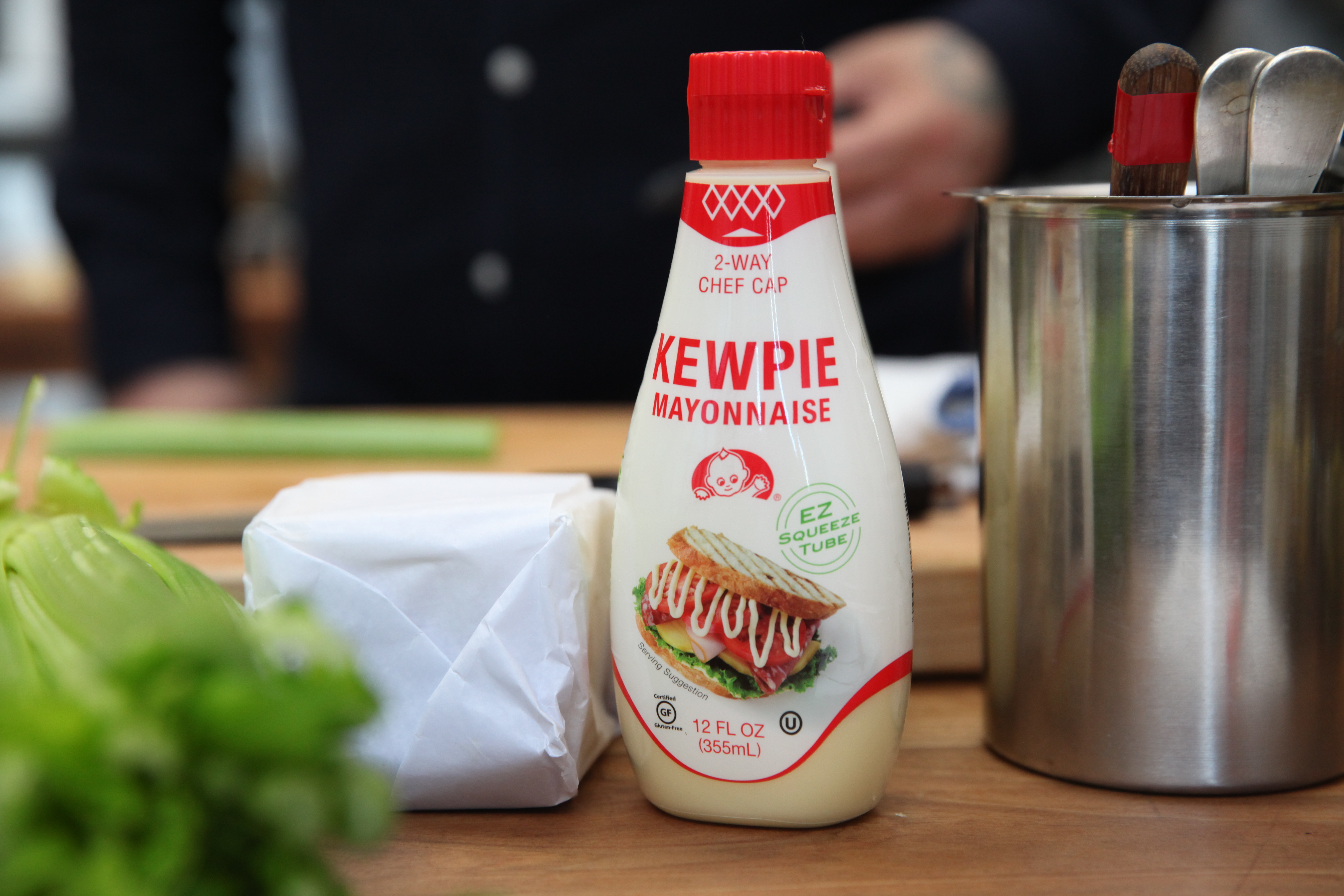
Most of this tuna melt is true to his mother’s, though of course Anderson has made a few updates. “The staple was tuna, cheddar cheese, and really bad green olives,” he says. The olives might be low-brow, but the tuna is now ventresca—a higher quality cut from the fish’s belly—and the mayo is Kewpie, instead of his childhood Miracle Whip. “My dad was a pretty straightforward Miracle Whip guy, and I can’t stand Miracle Whip. Those were two pivotal things in my life: when I tasted real butter and when I tasted real mayo.”
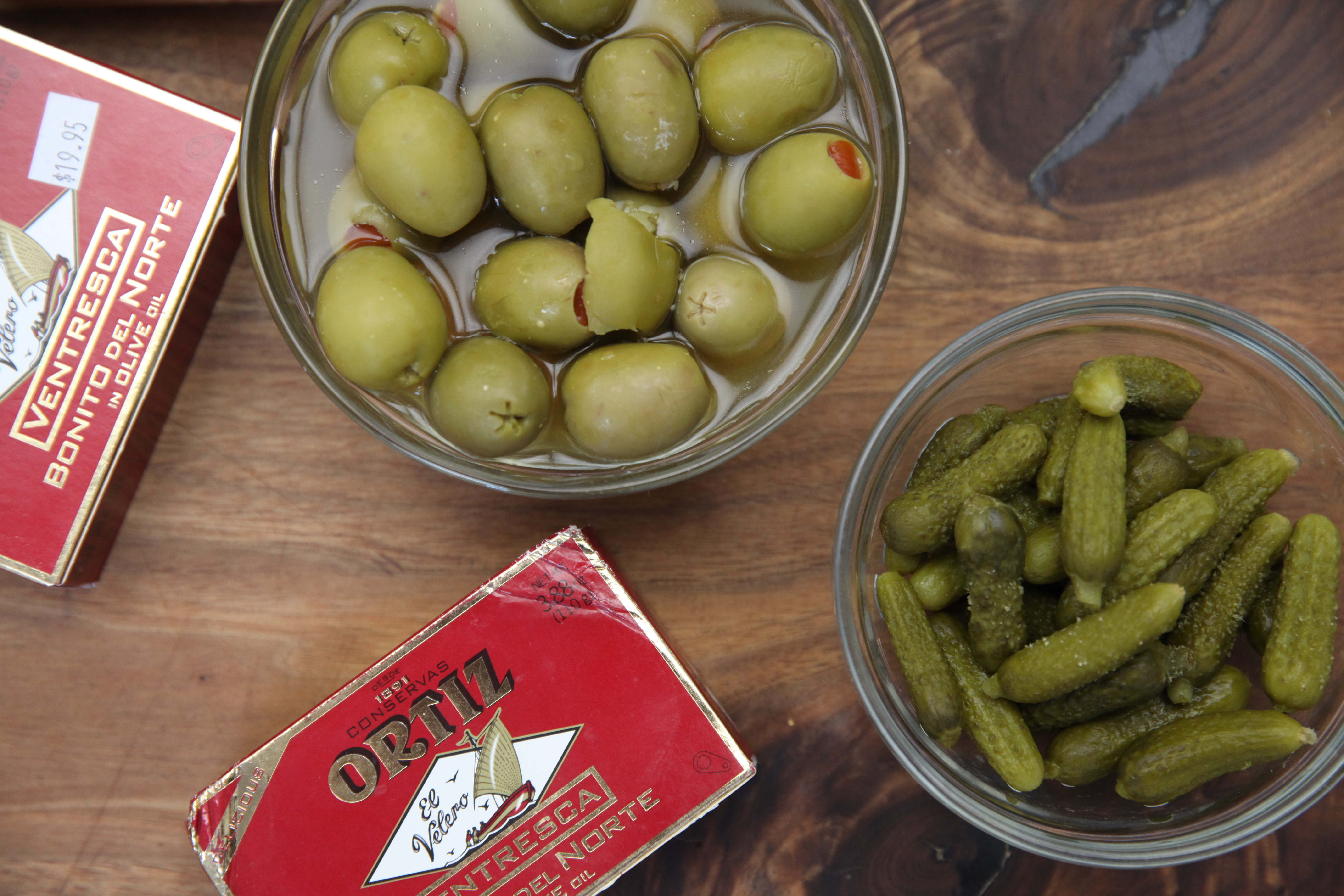
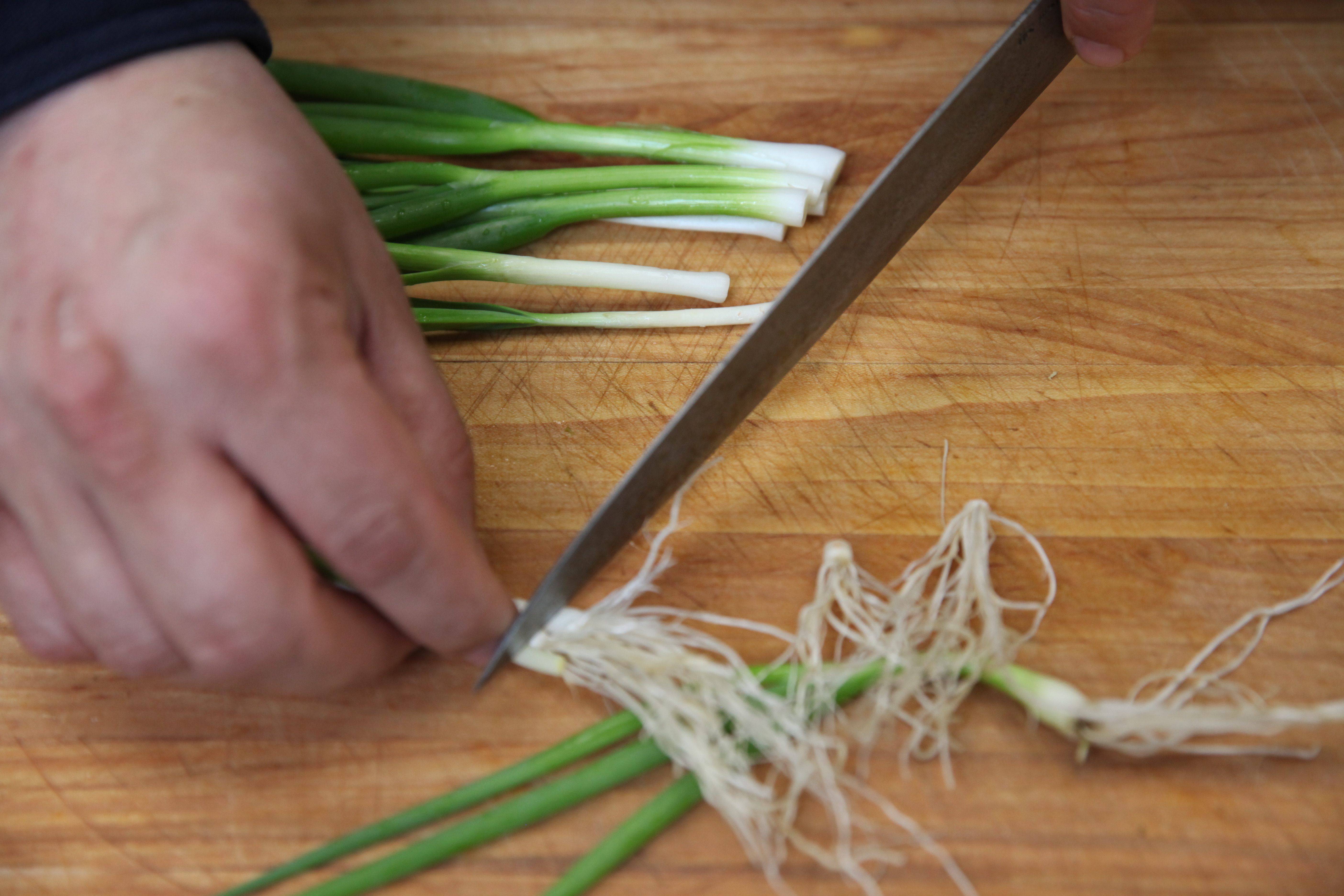
Into a bowl, Anderson mixes the canned tuna and mayo. He peels and dices a stalk of celery, and then cuts pimento-stuffed green olives. It’s not worth getting fancy here, according to Anderson; you want the briny, throwback flavor that only comes from cheap, canned olives. “That’s the one thing it’s gotta have,” he explains. “I just tasted one and it’s like, that’s the stuff.”
“You know the elBulli spherification?” Anderson says, referring to the Catalan restaurant that was known for pioneering techniques like turning liquids into gels to make dishes like “liquid pea ravioli.” The pimento inside the olive isn’t simply a slice of pepper, he says—it’s a gel mixture made using mashed peppers that’s then inserted into the olive. “If you look at green olives, they use sodium alginate because that’s how they make the pimento.” (When we double-check it later, he’s right, and in any case, for this usage, canned olives can’t be beat.)
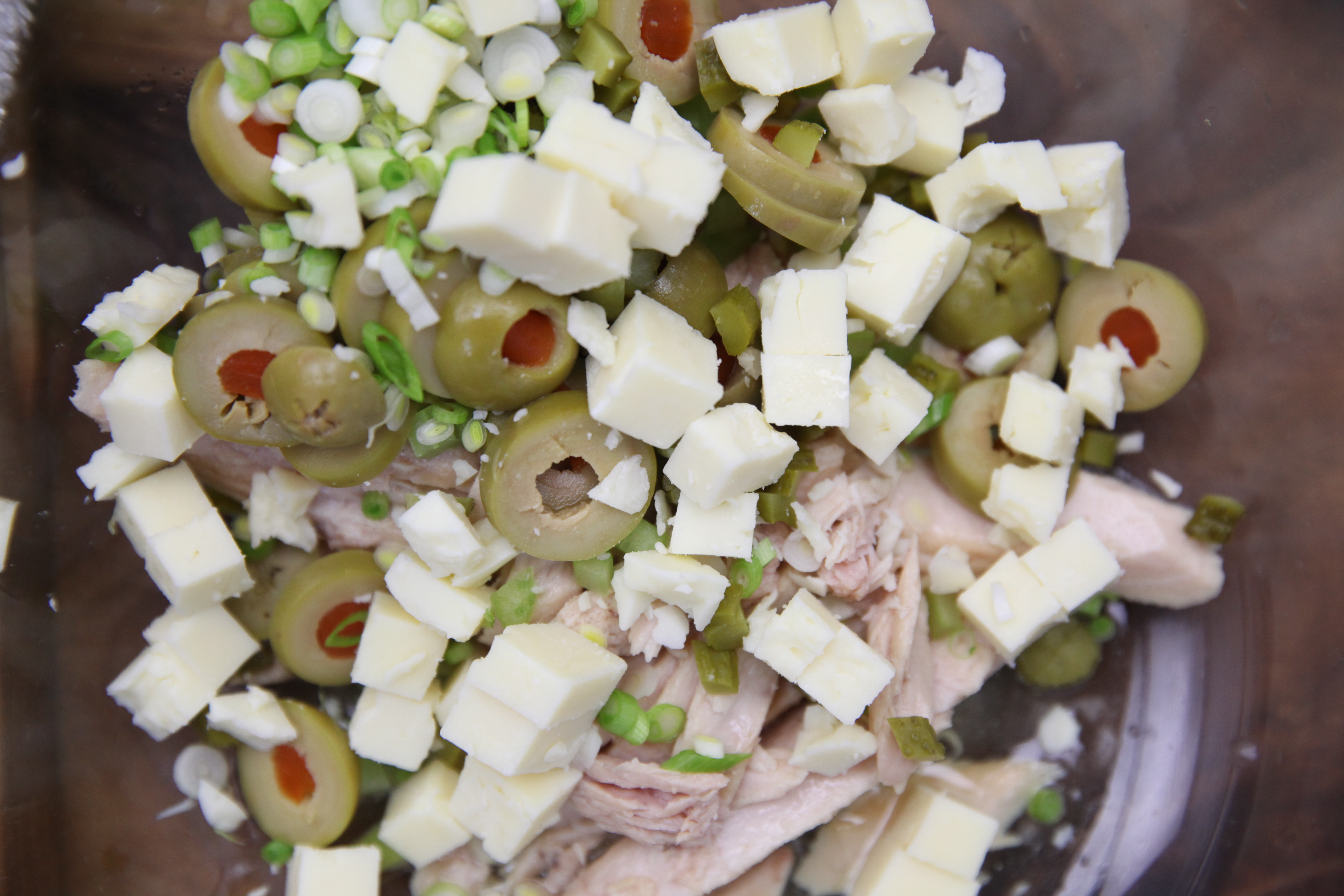
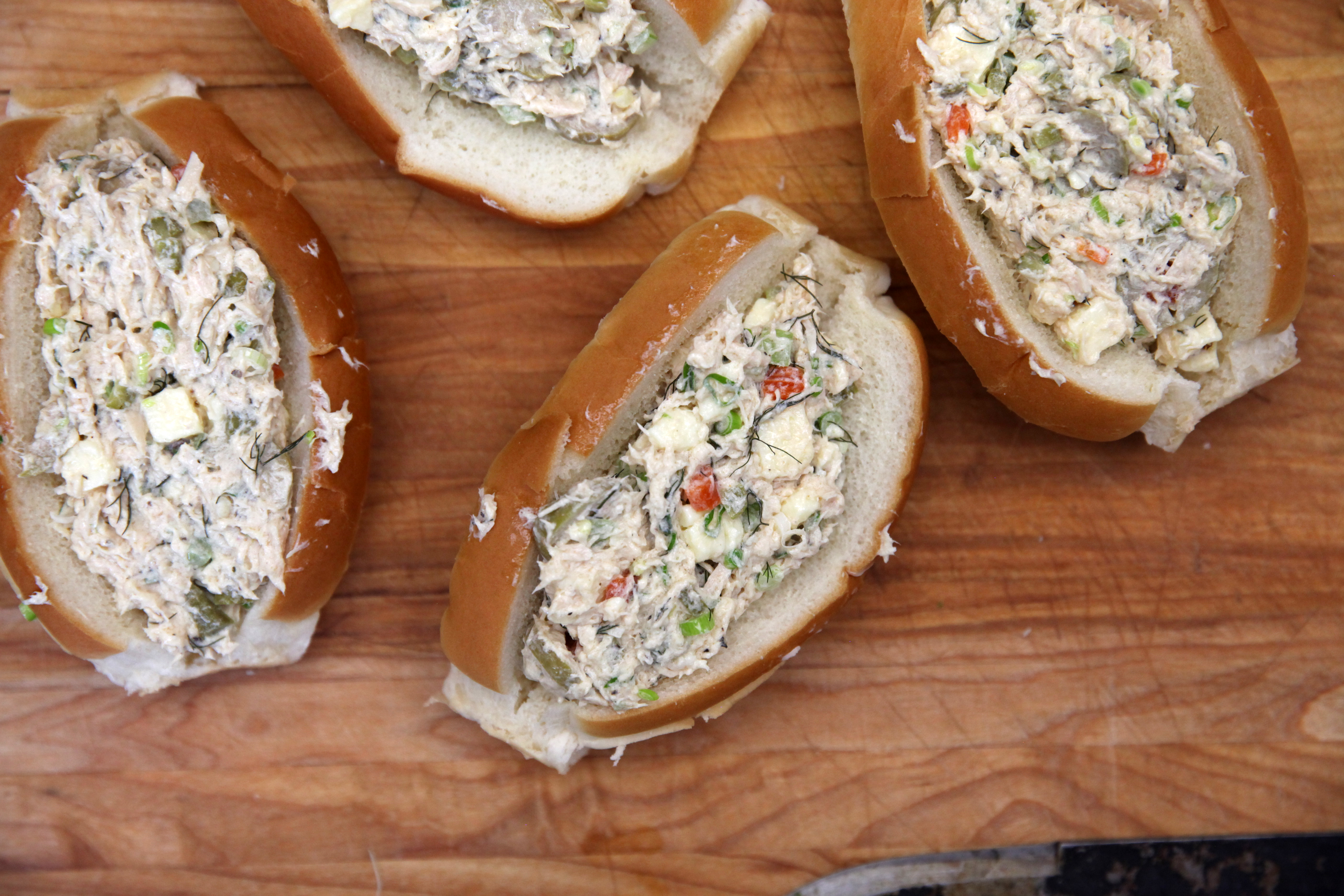
Anderson dices cornichons and throws those in, followed by sliced green onions, chunks of white cheddar, and a few dashes of Tabasco. He scoops the mixture into split-top hot dog buns, each of which is wrapped in foil before being baked. That’s when the waiting game starts, he says, “I remember waiting for these to come out of the oven, and then you grab them and they’re hot. You’ve gotta take them out with your hands and fend for yourself.”

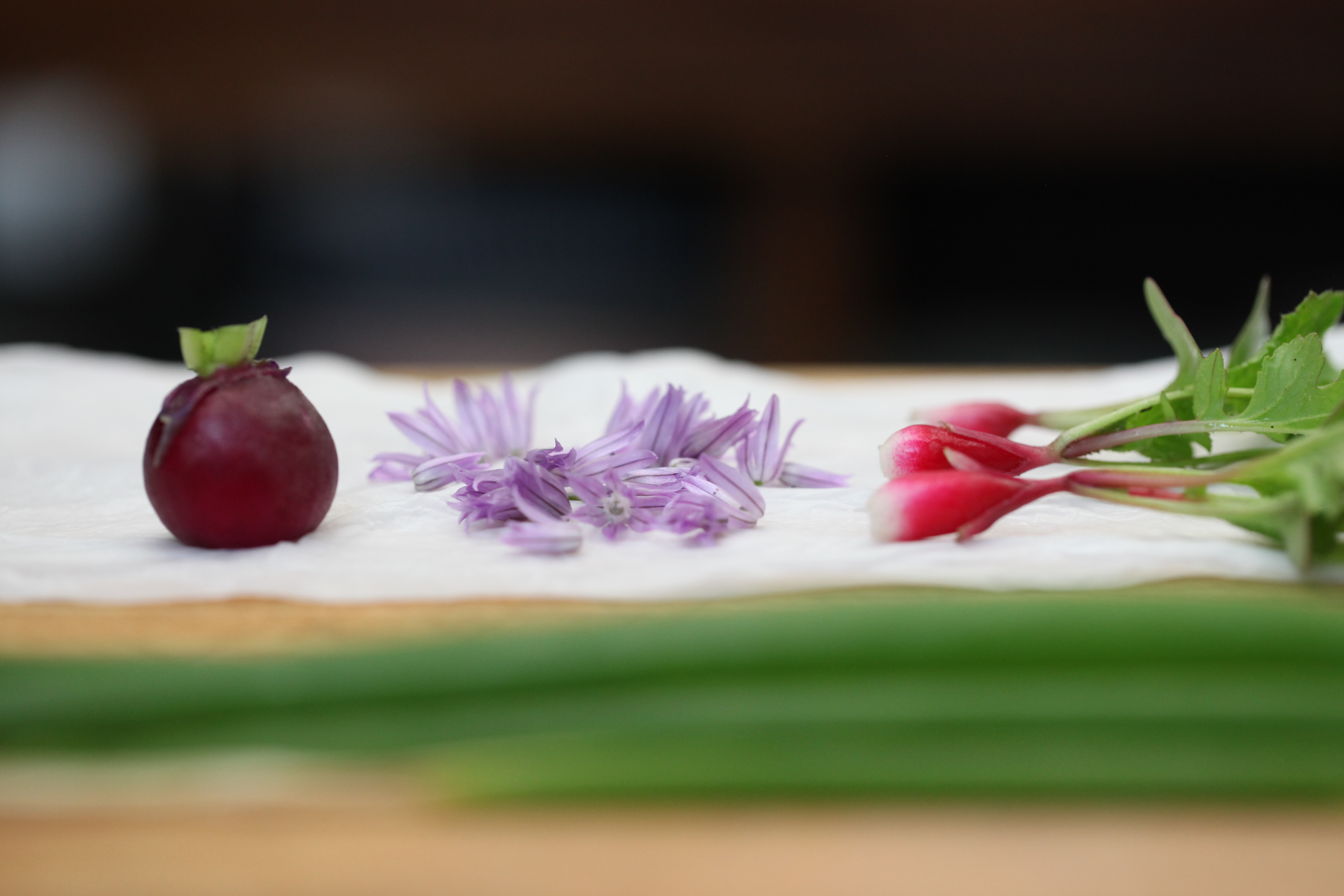
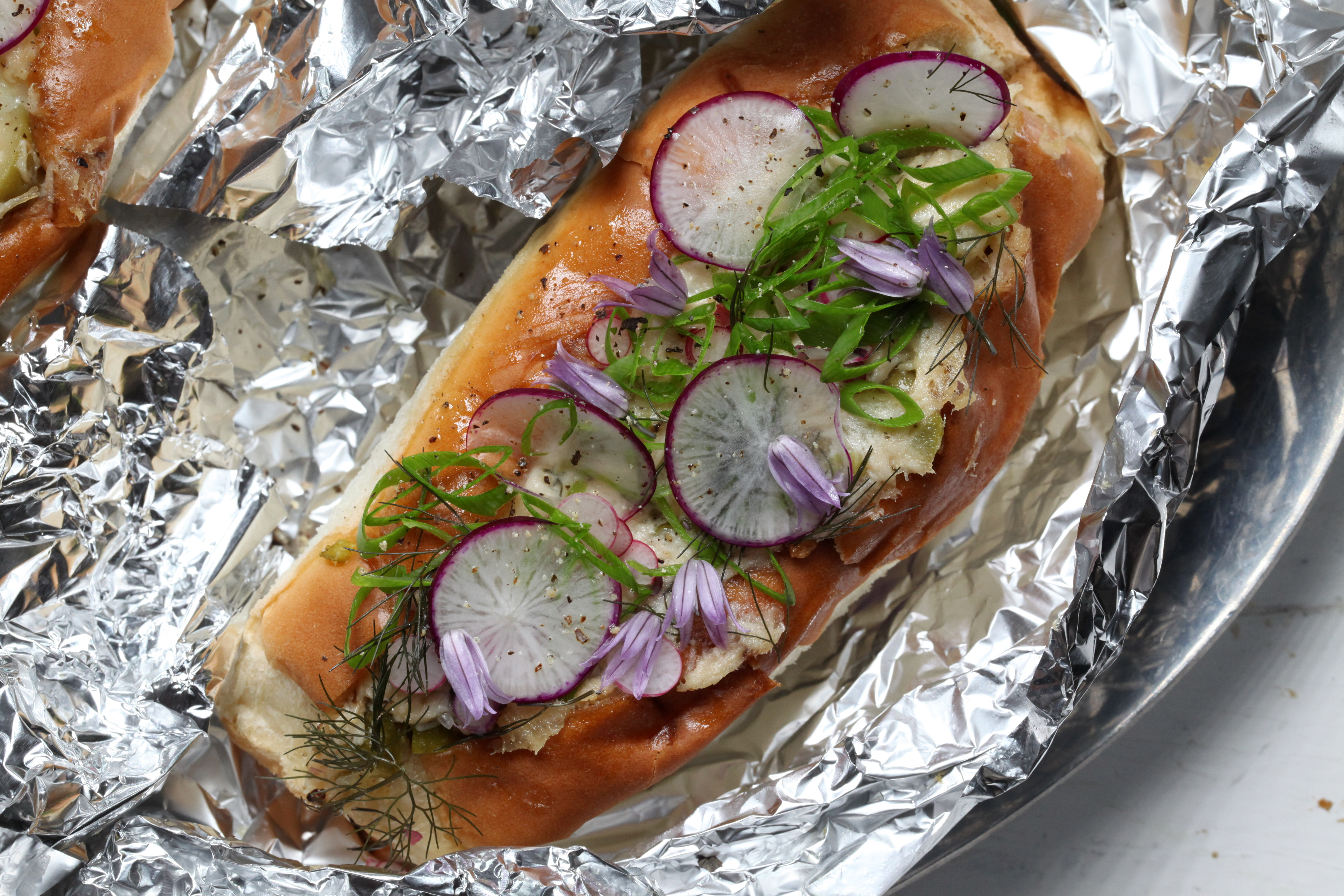
Before he started cooking, we took Anderson for a quick tour of our rooftop garden, which he used as a chance to grab some final additions to the tuna melt: thyme, bronze fennel, chive blossoms, and the tiniest radishes. He cleans and slices them, and when the tuna melts come out of the oven, he unwraps each and arranges the garnish carefully on top, turning each sandwich into the prettiest, fanciest tuna melt we’ve ever seen.
“This is definitely not something my mother would do,” Anderson says with a laugh. But as we each grab a melt and take a bite, he adds, “It’s like childhood memories.”
This article originally appeared on VICE US.